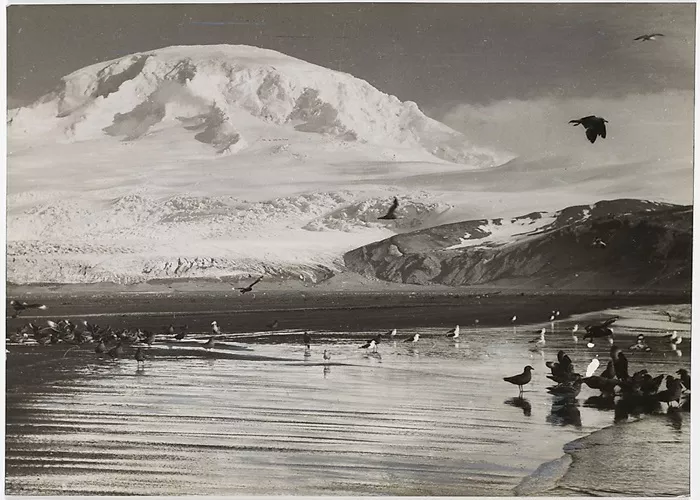January 4 has witnessed various notable events throughout Australian history, spanning exploration, political changes, and social upheaval. This article will explore these events in detail, providing context and significance to each occurrence.
What Happened on January 4 in Australian History?
1. Discovery of the McDonald Islands (1854)
On January 4, 1854, Captain William McDonald aboard the Samarang discovered the McDonald Islands, a group of uninhabited volcanic islands located in the Southern Ocean. This discovery was significant for several reasons:
Geographical Importance: The McDonald Islands are situated approximately halfway between Tasmania and Antarctica. Their discovery contributed to the understanding of Australia’s southern maritime boundaries and the geography of the region.
Scientific Interest: The islands have since been recognized for their unique ecosystems and biodiversity. They are home to various seabird species and marine life, making them a point of interest for ecological research.
Historical Context: The mid-19th century was a period of extensive exploration for Australia as European powers sought to map and claim territories in the Pacific region. This event reflects the broader narrative of exploration during this era.
2. Resignation of Sir William McMahon (1982)
On January 4, 1982, former Prime Minister Sir William McMahon resigned his seat in Parliament. This event marked a significant moment in Australian political history:
Political Background: Sir William McMahon served as Prime Minister from 1971 to 1972 and was a prominent figure in the Liberal Party. His resignation came after a long political career during which he faced various challenges, including economic issues and leadership disputes within his party.
Impact on Politics: His departure from Parliament signified a shift in the political landscape as it opened up opportunities for new leadership within the Liberal Party. It also reflected the changing dynamics within Australian politics during the early 1980s, a time characterized by economic challenges and shifting public sentiment.
Legacy: McMahon’s tenure is often remembered for its controversies, including his handling of economic policy and foreign relations. His resignation allowed for a new generation of leaders to emerge within Australian politics.
3. Fremantle Prison Riot (1988)
Another significant event that occurred on January 4 was the prison riot at Fremantle Prison in Western Australia in 1988. This incident had profound implications for the prison system and social justice issues in Australia:
Details of the Riot: The riot broke out as inmates protested against overcrowding and poor living conditions within the prison. The unrest resulted in extensive damage estimated at AUD $1.8 million.
Consequences: The riot highlighted systemic issues within Australia’s correctional facilities, leading to discussions about prison reform and inmate rights. It prompted government reviews of prison conditions across the country.
Historical Significance: This event is often cited as a pivotal moment that brought attention to the treatment of prisoners in Australia and sparked ongoing debates about justice reform.
4. Japanese Air Attacks During World War II (1942)
On January 4, 1942, Japanese air attacks began against Rabaul, New Britain, marking a critical point in Australia’s involvement in World War II:
Military Context: Rabaul was a strategic location for Japanese forces as they sought to expand their control over the Pacific region. The attacks were part of a broader campaign that threatened Australian territories.
Impact on Australia: The air raids underscored Australia’s vulnerability during the war and prompted increased military mobilization and defense efforts within Australia itself.
Legacy of Conflict: This period marked significant changes in Australia’s military strategy and its role in global conflicts, shaping national identity and defense policies in subsequent years.
5. Cultural Reflections
The events that occurred on January 4 reflect broader themes in Australian history, including exploration, political evolution, social justice movements, and military engagement. Each event contributes to understanding how Australia has shaped its national identity over time.
Exploration and Discovery: The discovery of new territories like the McDonald Islands illustrates Australia’s ongoing relationship with its geographical landscape.
Political Change: Resignations such as that of Sir William McMahon highlight shifts within political parties that can reshape governance.
Social Justice: Incidents like the Fremantle Prison riot emphasize ongoing struggles for rights and reforms within Australian society.
Military History: Events from World War II remind Australians of their historical conflicts and the implications for national security.
Conclusion
January 4 serves as a reminder of pivotal moments that have influenced Australia’s trajectory throughout its history. From discoveries that expanded geographical knowledge to significant political resignations and social upheavals, these events collectively contribute to understanding Australia’s past.In writing this article, we have explored these historical moments with an emphasis on clarity and context. Each event is not just a date on a calendar but part of a larger narrative that defines Australia’s identity today. Understanding these occurrences allows us to appreciate how history shapes contemporary society and informs future directions.
Related Topics:

